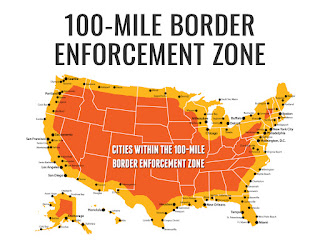It felt like the beginning of an apocalypse movie.
No announcement. No sirens. Just… silence where the signal should be.
We were working from home when the internet stopped. He figured he’d forgotten to pay the bill, no big deal. So we walked down to the neighborhood beer hall to square things away and get back online. But as we walked in, I overheard the server say, “We’re doing it old school today!”
I leaned in and asked, “Is the internet down here too?”
She nodded. “Yep. Cash only.”
That’s when it hit me: this wasn’t just us. Maybe it wasn’t just our block, or even our city. For all we knew, this could be nationwide. Or worse.
People were sitting outside the beer hall with their phones in their hands, staring at screens which refused to load, like they were trying to will them back to connection. Confused faces turned toward each other, strangers suddenly linked by a shared uncertainty.
“Is your phone working?”
“No. Yours?”
“What about your Wi-Fi?”
“My kid was supposed to text me when they got home—nothing yet.”
“Do you think it’s just here? Or bigger?”
It wasn’t panic, not yet. Just the early rustle of something coming undone.
Inside the store, the card machines were down. A sign scrawled in red marker read: “Cash only.”
The clerk was visibly rattled. “Is this nationwide?” he asked. “I can’t reach my niece. She lives alone.”
He stared at his phone like it had betrayed him.
And then the bees came.
A sudden, swirling mass collecting on a tree in the parking lot. Dozens? Hundreds? It was hard to tell. They came out of nowhere, humming with urgency and chaos, spinning like a warning we couldn’t yet understand. We backed away slowly, cautiously, eyes darting between the swarm and the silent screens in our hands.
It was surreal. Primal. Like the air itself had shifted.
And maybe it had.
Bees are sensitive to electromagnetic changes. They navigate using Earth’s magnetic fields, and when those fields are disrupted, by solar flares, grid disturbances, or technological interference, they sometimes panic, swarm, flee.
So maybe this wasn’t just a glitch. Maybe the bees knew before we did.
I had no idea where my kids were. They had just moved with their dad and stepfamily, and I didn’t know the new address by heart. I had no way to reach them. No way to get to them. I couldn’t check the news. Couldn’t message my parents, who are scattered all over Portland. Couldn’t even pull cash from the ATM to buy a gallon of milk.
Suddenly, I realized how fragile our daily lives have become. How much we depend on invisible systems we don’t control. And how unprepared I am for any kind of disruption, let alone a coordinated cyberattack, a power grid failure, or an infrastructure collapse.
This wasn’t just a tech hiccup. It was a wake-up call.
And we’re fools if we think we’re safe.
Just last month, millions of people across Spain, Portugal, and parts of France lost power for hours. Investigators are still trying to determine if it was a cyberattack, grid failure, or both. Around the same time, Cannes and Nice went dark, this time from what authorities say was sabotage, possibly by a political group.
Here in the US , it’s already started. The Colonial Pipeline cyberattack in 2021 shut down fuel supplies for nearly a week. Extremists have targeted power substations in North Carolina and Washington. Federal judges are now openly discussing breaking away from the Department of Justice to form their own security forces because the threats against them are growing, and the system meant to protect them might not.
These are not isolated incidents. They’re dominoes. And we are running out of time to brace for the next one.
Like so many others, I’ve been lulled into a false sense of security by the illusion of convenience. I’ve got enough food and water to last a while, but no radio to find out what’s happening if the internet goes out. No plan for getting my kids back to me if phones go down. No plan for connecting with my parents if roads are closed or my car won’t start. Not even cash on hand when my phone won’t tap to pay.
We are more vulnerable than we want to believe.
And the bees—the bees knew.
I don’t want to wait until it’s too late to get serious about preparedness.
Maybe you’ve had a moment like this too. Or maybe this is your moment.
I hope you don’t need to feel like you’re starring in the first scene of a dystopian movie to realize: your comfort is not guaranteed. Neither is your connection, your safety, or your access to the people you love most.
The time to get your house in order is before the lights go out.

